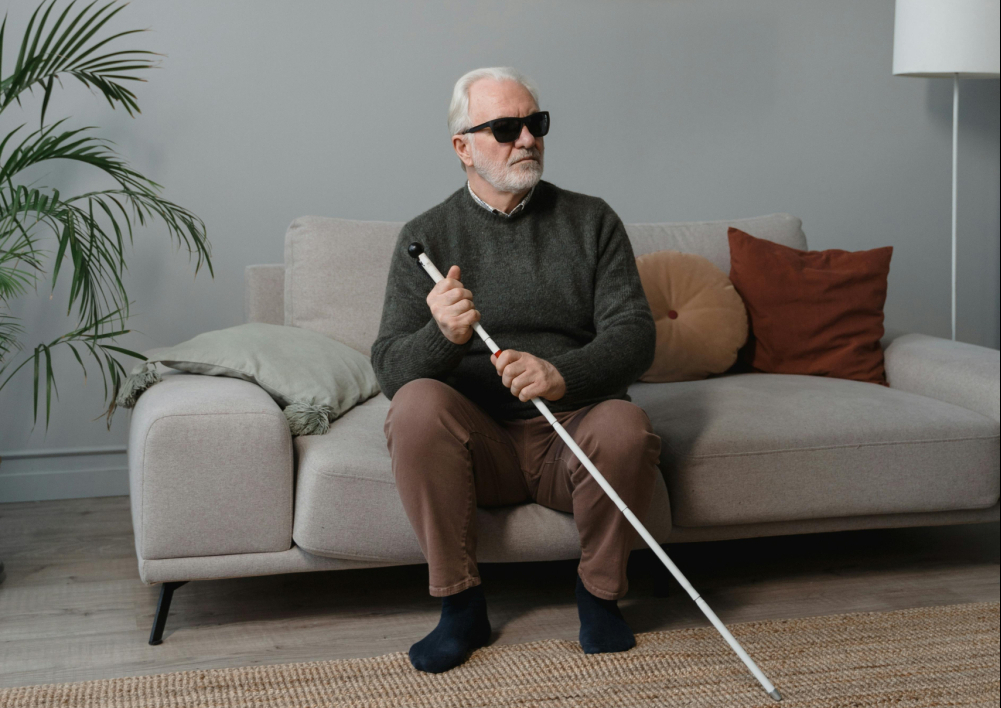4 most common eye diseases that cause blindness
Vision problems occur gradually and therefore are hard to detect, especially aging eyes.
However, early signs of aging eyes can be noticed via behavioural changes in seniors. For instance, they might be sitting very close to the TV, avoiding reading, or even mixing up their medications that have similar labels.
Through careful observation, you may identify warning signs to your senior’s eyesight which can lead to early treatment and prevention of any potential diseases.
Here are 4 most common eye diseases that cause blindness in seniors which can be of a reminder for you to attend to:
1. Age-related macular degeneration (AMD)
The leading cause of vision loss and blindness in people aged 65 and older, AMD is a disease that affects a person’s central vision. Although it is rare to go blind from it, there are several signs that include discomfort:
- Shadowy areas in the centre of the vision
- Not being able to see things close
- Unusually fuzzy or distorted vision
There is no complete cure for AMD. However, there are several healthy choices that can be made to reduce the risk for the disease:
- Do not smoke
- Exercise regularly
- Maintain healthy blood pressure and cholesterol levels
- Keep a healthy diet, including leafy greens and fish into meals
2. Cataracts
A cataract is a cloudy or hazy area in the eye’s lens. It is a common eye condition that occurs as one ages, which makes the vision blurry, hazy, or less colourful. So, it becomes harder for the individual to read or conduct other everyday activities.
For an early stage treatment, one can seek for stronger prescribed glasses, magnifiers, or better lighting. However, if cataracts develop further, a simple, quick surgery can be taken to improve the vision.
3. Diabetic eye disease (diabetic retinopathy)
Diabetic retinopathy is an eye condition that can cause vision loss and blindness in people with diabetes. With this condition, the individual can experience difficulties in seeing things near or obvious. It is important to note that chances of getting diabetic retinopathy increases the longer the person has had diabetes.
Once vision is lost on its way, it is hard to turn back. Therefore, for diabetic patients, it is highly recommended to take a comprehensive dilated eye exam at least once per annum.
4. Glaucoma
Glaucoma is the name given to a group of eye disorders that damage the optic nerve. This nerve serves a critical role, transmitting information from your eye to your brain. Therefore, impairment in the nerve can be detrimental, which can lead to vision loss.
As most types of glaucoma are painless and show no symptoms in the developing stage, it is easy to leave it untreated until significant vision loss occurs. As a prevention measure, a routine eye exam for glaucoma is recommended.
If your senior shows any signs of vision problems, seek eye doctor’s help immediately. For more helpful information like these, visit https://www.livingwatersagedcare.com.au/

